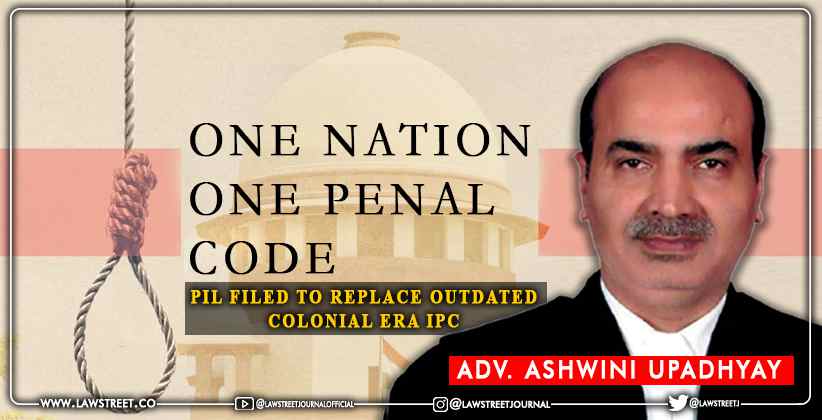A Public Interest Litigation has recently been filed in the Supreme Court seeking directions to the Centre for setting up a judicial panel or body of experts to draft a comprehensive and stringent legislation to replace and revamp the British-made Indian Penal Code as currently applicable.
As per the plea filed by Advocate Ashwini Upadhyay, India needs a comprehensive Penal Code that provides equal protection to all the citizens against all the offenses and secures the right to life, liberty, dignity, and the rule of law.
Commenting on it, the lawyer and BJP leader said that the apex court is the "custodian of the Constitution and protector of fundamental rights" and that it may direct the Law Commission India to examine "domestic and internal laws relating to corruption and crime and draft a stringent comprehensive Indian Penal Code within six months."
To this effect, the PIL read, "Direct the Centre to constitute a judicial commission or an expert committee to examine all domestic-internal laws relating to corruption-crime and draft a comprehensive stringent 'one nation one penal code' in order to secure the rule of law, equality before law and equal protection of laws."
Background of IPC:
The Indian Penal Code (IPC) was formalized under British rule around 150 years ago. It specifies crimes and punishments that were drafted for the convenience of the colonial empire. While the legislation was way ahead of its time when implemented, it requires to be reworked in the context of modern democratic India.
For instance, laws related to witch-hunting, honor killing, mob lynching, Goonda Act, etc., are not included in the IPC though these are pan-India offenses. At the same time, the sentences for crimes are different for the same offense from state to state. To standardize the punishments and make them uniform, a new IPC is essential.
The restructuring or replacement of the IPC is also called for as many of its provisions have become obsolete with changing economic and technological developments. Although there have been amendments to the law from time to time, it has not been amended as a whole and continues to further the British perspectives that may not be relevant in today's times.
Prayers in the Present PIL:
The PIL points out the dire need to replace the colonial-era law with a comprehensive penal code that is drafted keeping in mind the current judicial needs of the country.
It reads, "rule of law and right to life, liberty, and dignity can't be secured without implementing a stringent and comprehensive 'One Nation One Penal Code' having specific chapters on bribery, money laundering, black money, profiteering, adulteration, hoarding, black marketing, drug smuggling, gold smuggling, and human trafficking."
It further adds that "If this IPC had been even a little effective, then many Britishers would have been punished, not the freedom fighters. In fact, the main reason behind creating the IPC 1860 and Police Act 1861 was to prevent another revolt like that of 1857."
A 'One Nation One Penal Code' is thereby prayed for before the apex court via this PIL, expected to be heard next week.








